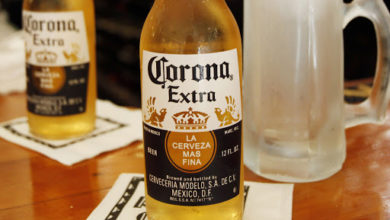Daily protein needs for seniors still unsettled
My mom is a little feather of an 84-year-old, quite thin and less than five feet tall. So I wasn’t surprised when her doctor told us recently to make sure she ate more protein, preferably at every meal or snack. Protein is good for building and maintaining muscle and bone. It’s also important for strength and function. A new study aimed to extend the benefits even further, to stroke prevention.
Researchers in China analyzed seven studies that included more than 250,000 participants who ranged in age from their mid-30s to their 80s. They were followed for an average of 14 years. People with the most protein in their diets were 20% less likely to have had a stroke during the study period than those with the lowest amount of protein in their diets. Even more impressive, the risk of stroke went down 26% for every increase of 20 grams of protein in the daily diet. The results werepublished online today in the journal Neurology.
According to the researchers, if everyone started eating more protein we’d see nearly 1,500,000 fewer stroke deaths per year globally.
That seems like a pretty important finding. Stroke is a major cause of death and disability. But should we buy it? Not yet, cautions Dr. Randall Zusman, a cardiologist at Massachusetts General Hospital and associate professor of medicine at Harvard Medical School.
“The findings are provocative and are hypothesis-generating, but I would say there are too many uncontrolled factors in the studies,” he says.
For one thing, other studies have shown no link between dietary protein and stroke. For another, the stroke benefit may be due to what wasn’t eaten. Eating more protein means eating less of something else. Study participants who ate more protein may have eaten less in refined carbohydrates or other potentially harmful foods. That effect was seen in the OmniHeart Trial, which showed that blood pressure, harmful LDL cholesterol, and triglycerides all went down when people ate more protein and fewer carbohydrates.
So maybe we shouldn’t count on the eat-more-protein-reduce-stroke-risk news. But that doesn’t make dietary protein any less vital, especially in older adults who are at greater risk for malnutrition and illness.
How much protein is enough? Current guidelines for adults of any age recommend 0.8 grams of protein per kilogram of body weight. To find out how much you need, multiply your weight in pounds by 0.36. Or use an online protein calculator.
A 160-pound person would need 160 x 0.36 = 58 grams of protein a day. That’s relatively easy to hit: a cup of yogurt for breakfast, a peanut butter and jelly sandwich for lunch, nuts for a snack, and salmon for dinner clock in at 60 grams.
Do older people need more protein than younger ones? “The optimal amount of protein intake to preserve lean body mass, other body functions, and overall health is not well studied in long term research,” says registered dietitian Kathy McManus, director of the Department of Nutrition at Harvard-affiliated Brigham and Women’s Hospital.
That said, it’s clear that some older individuals don’t get enough protein to meet their bodies’ needs, especially if they aren’t getting enough daily calories, says McManus.
So what should you do? Aiming to meet the current recommendations (about 7 grams of protein for every 20 pounds of body weight) is a good first step. You may have to do a little sleuthing of the common foods you eat to find out how many grams of protein are in an average serving. Here are some examples:
| Food | Protein (grams) |
| 6 ounces plain Greek yogurt | 18 |
| ½ cup cottage cheese | 14 |
| 1 ounce cooked turkey or chicken | 9 |
| ½ cup cooked beans | 9 |
| 1 cup of milk | 8 |
| 1 ounce tuna, salmon, haddock, or trout | 7 |
| ¼ cup or 1 ounce of nuts (all types) | 7 |
| 1 egg | 6 |
| 1 cup cooked pasta | 6 |
Source: Brigham and Women’s Hospital Department of Nutrition
You can see a more extensive list of the amount of protein in food on the U.S. Department of Agriculture’s National Nutrient Database.
What about the type of protein you eat? Mounting evidence shows that reducing animal-based proteins and increasing plant-based proteins is a healthier way to go. You don’t have to replace all of the meat in your diet with plant-based protein. Switching just one serving of red meat per day for poultry, fish, or plant-based protein can make a big difference. One of the findings of the Chinese study in Neurology was that replacing red meat with other protein sources, such as fish, might reduce stroke risk.
But remember that diet, including protein, is just part of the formula for good health and stroke prevention. “The general recommendation for a balanced diet, weight control, salt restriction, daily exercise, and controlling blood pressure and cholesterol still applies,” says Dr. Zusman.
By Heidi Godman, Executive Editor, Harvard Health Letter



